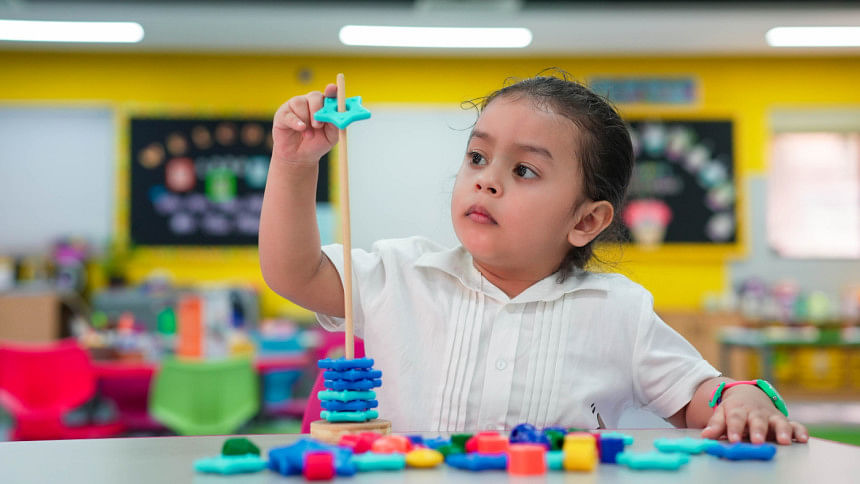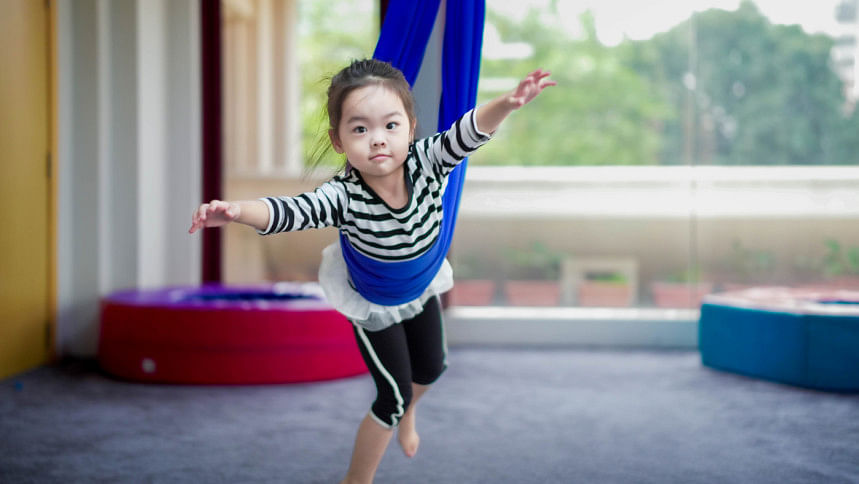How play-based learning is the key to your child’s development

Today's children are growing up in a rapidly transforming digital era. From an early age, they're exposed to digital stimulation. It means their way of thinking is developing differently from that of their parents and grandparents. While previous generations may have thrived under rigid, lecture-based instruction, in 2025, children tell a different story. These digital natives show greater enthusiasm, an ability to retain information, and think creatively when they learn through newer, innovative approaches, compared to the more traditional teaching methods of previous generations.
However, the unfortunate reality is that our existing education systems often overlook the holistic development of a child across all developmental domains--cognitive, physical, social, emotional, and creative. This produces graduates with stellar grades but who lack the essential competencies for a life and career beyond school.

Schools play a pivotal role when it comes to the holistic development of children by creating environments that nurture all aspects of a child's growth simultaneously. Through education, exposure to different cultures, and fostering a sense of empathy, schools help children develop a strong moral compass, respect for others, and an appreciation for cultural diversity.
Interactions with peers from different backgrounds enable them to gain a broader perspective, develop cross-cultural communication skills, and become more open-minded. At the International School of Dhaka (ISD), this principle guides every aspect of early childhood education. ISD Early Years integrates these elements into its daily routines through a thoughtfully designed play-based approach. This ensures children grow not only as learners but as individuals. As an International Baccalaureate World School, ISD offers the IB curriculum comprising IB Primary Years Programme (PYP), IB Middle Years Programme (MYP), and IB Diploma Programme (IBDP).
Play-based learning is a method that focuses on the use of play in promoting multiple areas of children's development and learning. Of all the approaches available to early childhood teachers, play-based learning stands out as a highly effective method.
During these early years, a child's brain is extremely sensitive to new experiences, so it is the optimal time to establish habits that will define their life beyond the classroom.
This style of learning builds problem-solving, critical thinking, and communication skills and increases emotional intelligence by working together and through empathy. Children learn language, motor skills, and creativity through telling stories, active play, and role play. When children control their play activities, they gain confidence and self-esteem, while children learn flexibility when they encounter surprises. Above all, play builds intrinsic motivation: children learn because they want to, not because they're told.

Play-based learning in ISD Early Years operates under the Primary Years Programme (PYP) framework, providing "an inquiry-driven, play-based programme where children are free to be active participants in their learning." Through play, children wonder, question, and theorise about the world, others, and themselves.
ISD's Early Years also has a sensory room, which is a space that supports children to regulate their mind and body by creating a calming environment as a response to and prevention of sensory overload. The area supports children by encouraging sensory stimulation, supporting emotional well-being, and providing a safe space to practice coping skills and emotional regulation strategies. This space invites children to sit on cushions or in the darkened tent while listening to gentle music, breathing in calming aromatherapy scents, and engaging their sense of touch with a variety of tactile materials. After working through their emotions and focusing on themselves, children are better prepared for learning and interacting with others. For parents, this model gives them the confidence that learning can be productive as well as enjoyable.
To thrive in our rapidly changing world, children must have more than textbook knowledge. They need flexibility, creativity, emotional intelligence, and collaboration skills. Playful learning develops these competencies organically, preparing students to handle challenges we cannot yet anticipate. Children explore ideas, develop problem-solving abilities, and acquire the resilience to learn throughout life through purposeful play. They learn to take thoughtful risks, develop self-confidence, and maintain intrinsic motivation--qualities that will serve them well throughout life and learning.
To know more about ISD's early years programme, please visit www.isdbd.org/learning

 For all latest news, follow The Daily Star's Google News channel.
For all latest news, follow The Daily Star's Google News channel. 



Comments